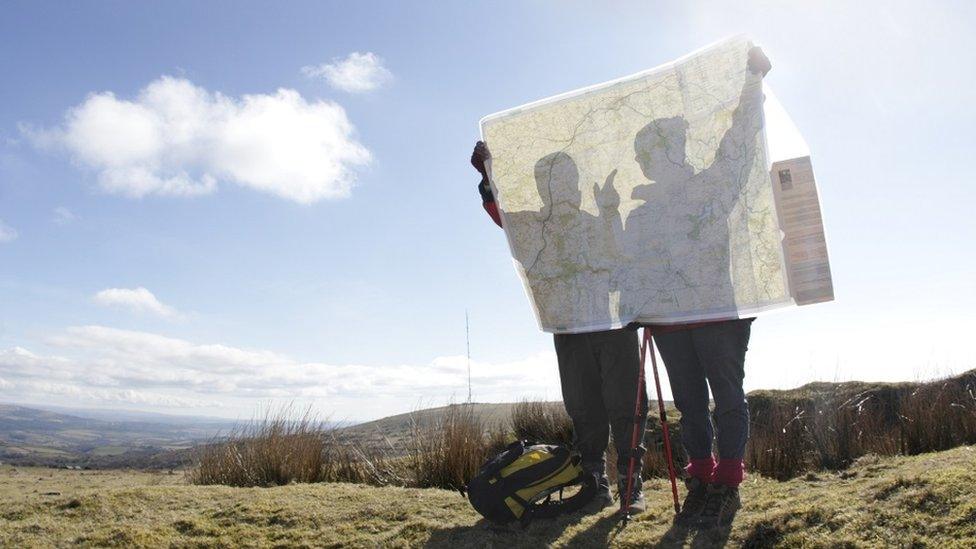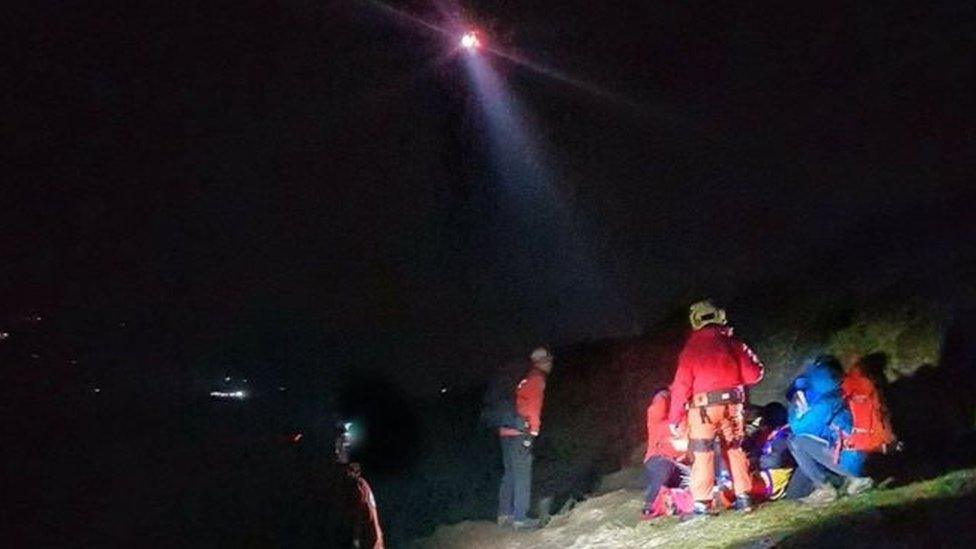Police warning after record rise in mountain team rescues
- Published

Police Scotland said some of those rescued had not appreciated challenges they might face while hillwalking
People ill-prepared for conditions in Scotland's hills have led to a record rise in call-outs for some mountain rescue teams.
Police Scotland said the year so far had seen a 20% rise in incidents dealt with by north and north east teams.
Tayside Mountain Rescue Team has been called out 64 times since January while Highlands-based teams more than 210.
Most have followed the end of lockdown which saw the longest period without a mountain rescue in almost 20 years.
People not skilled and properly equipped for hillwalking has been a key factor behind the record increase in call-outs, which also saw north east teams deploy almost 50 times.
Sgt Peter Lorrain-Smith, Police Scotland's mountain rescue co-ordinator, said: "The north of Scotland is lucky to have some of the most beautiful hills and mountains in the country, and over the past few months we have experienced a significant increase in the number of people heading outdoors to enjoy themselves.
"By all means I do not want to put anyone off appreciating our great outdoors, however, I must highlight just how crucial it is that you are prepared."
'Didn't appreciate conditions'
Sgt Lorrain-Smith said planning safe routes, wearing suitable clothing, carrying torches and having map-reading skills were among "sensible precautions".
Checking mountain weather forecasts and avalanche risk forecasts are also advised.
He added: "Many people have told us this is the first time they have ever hill walked or climbed, and didn't appreciate just how quickly conditions can turn."
He said anyone who found themselves in difficulty should not hesitate to call for help.
During the lockdown when strict travel restrictions were in place, Scottish mountain rescue teams had their longest time between call outs since the foot and mouth outbreak in 2001.
The crisis, the worst to hit agriculture in decades, led to months long restrictions on access to land.
- Published18 April 2020
